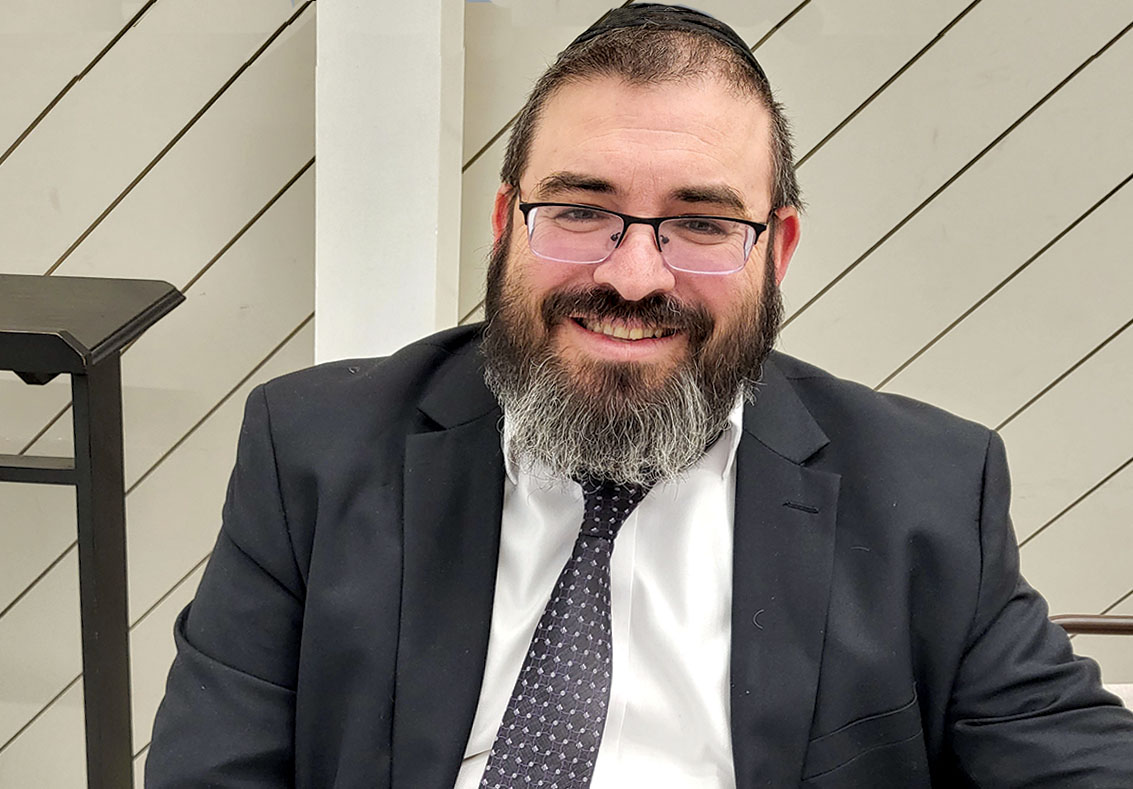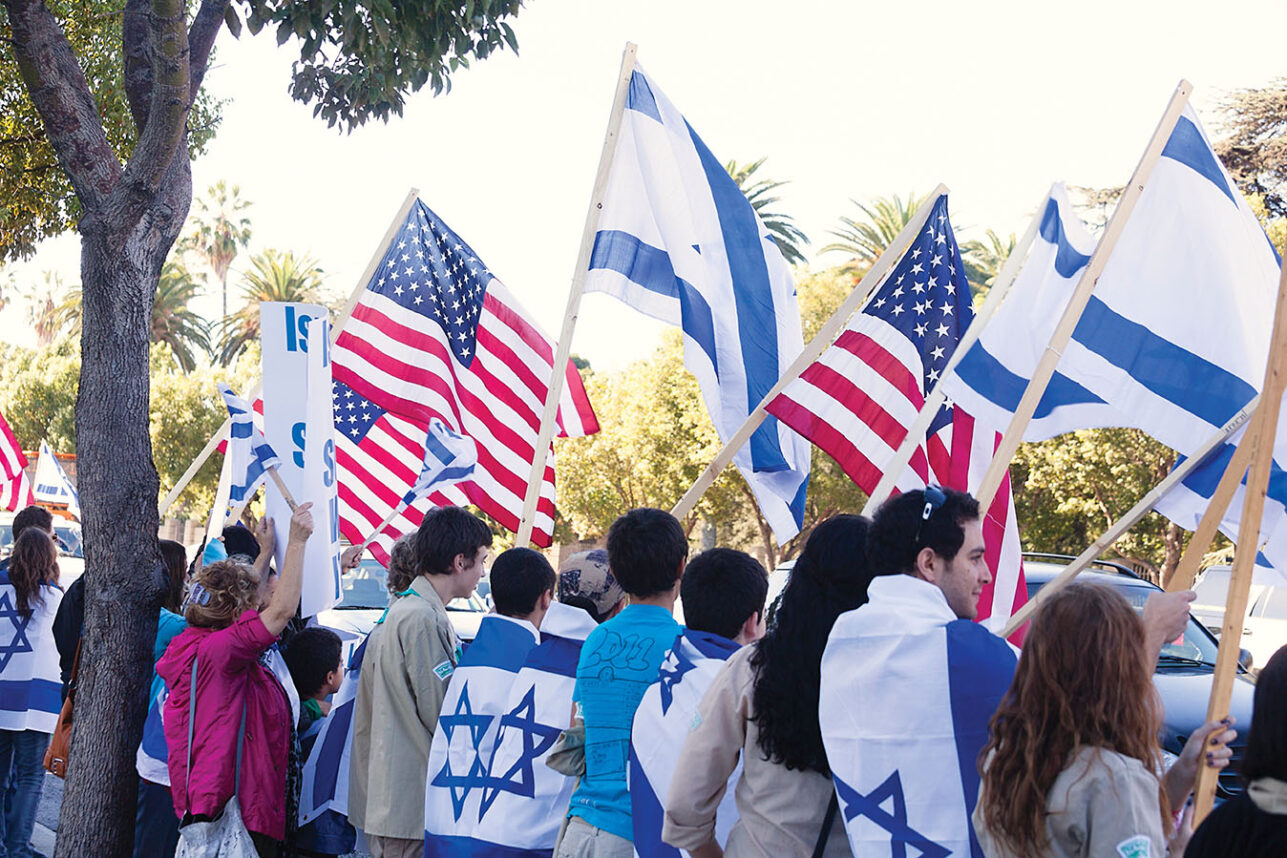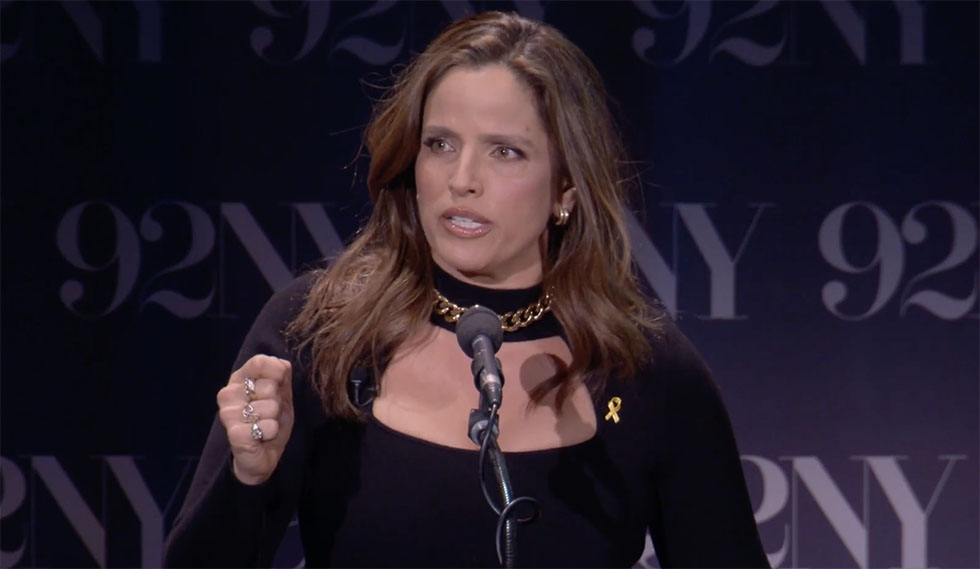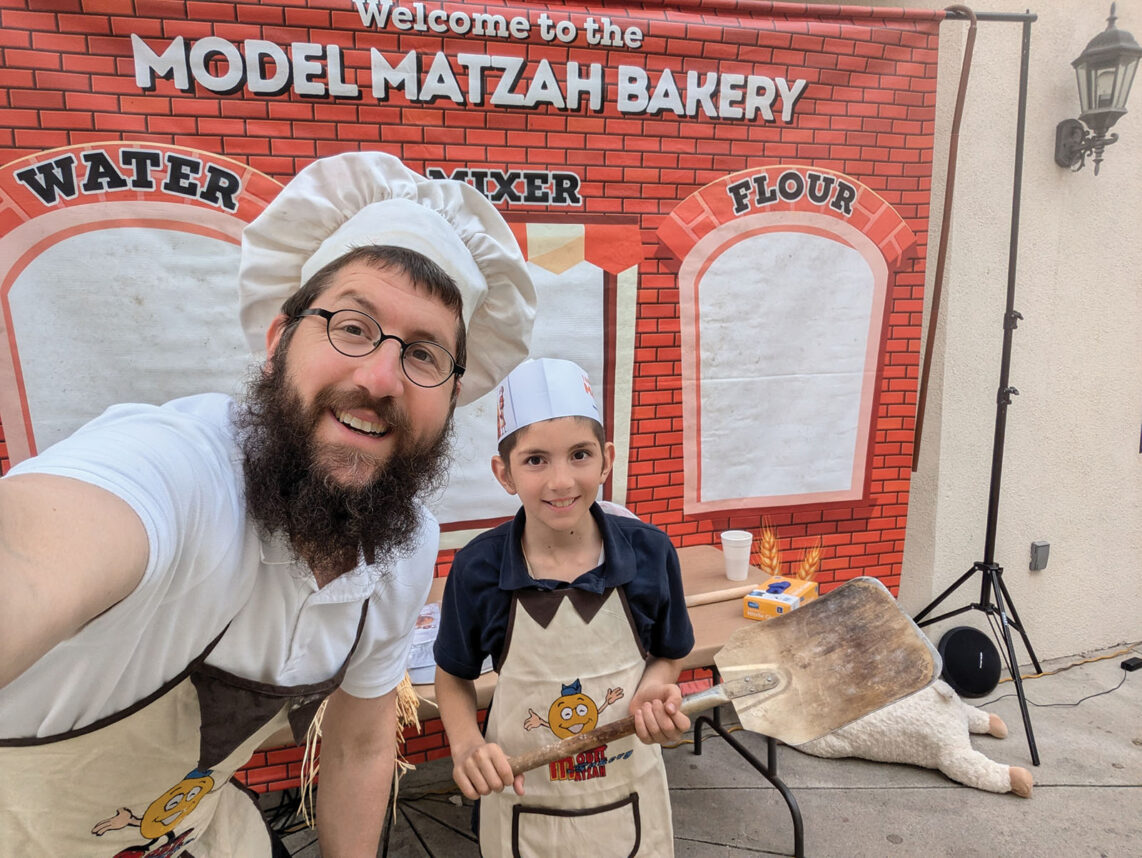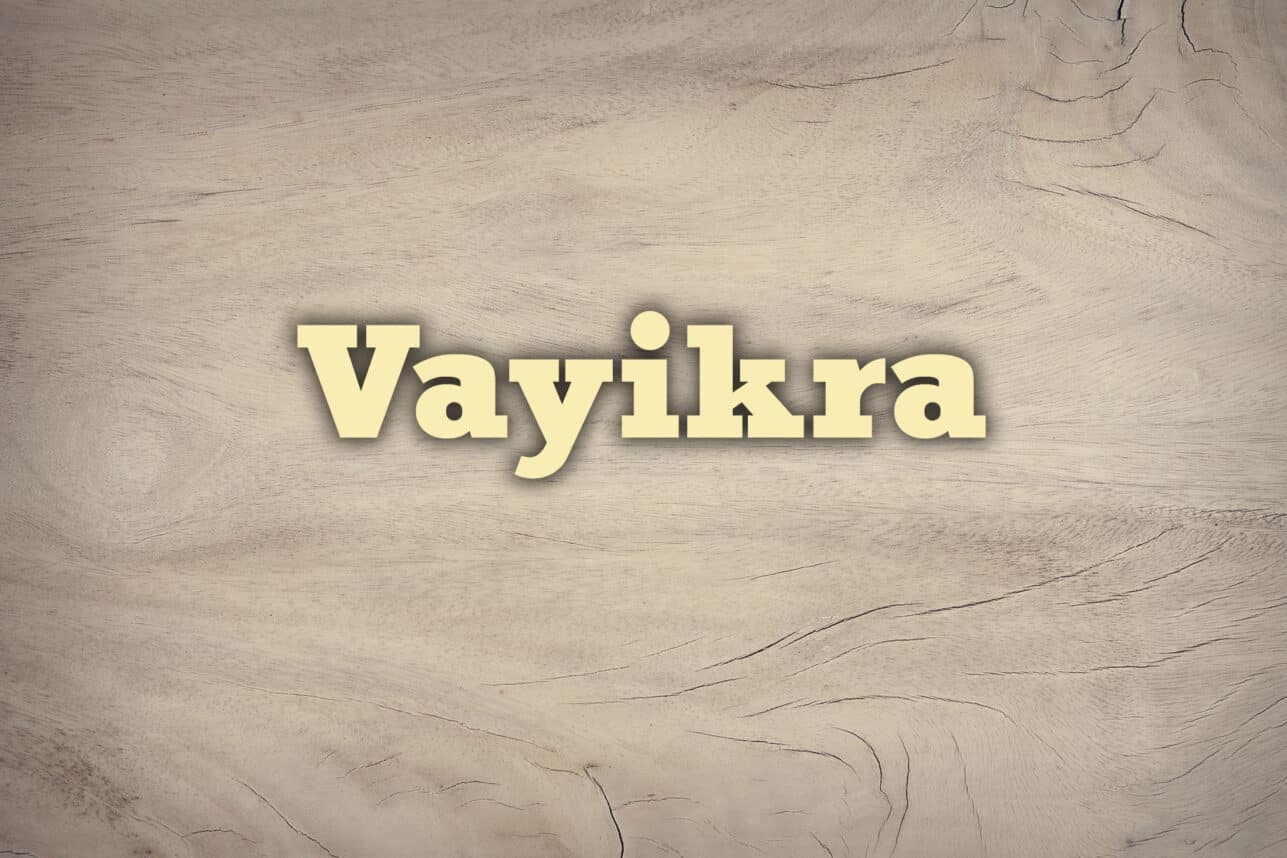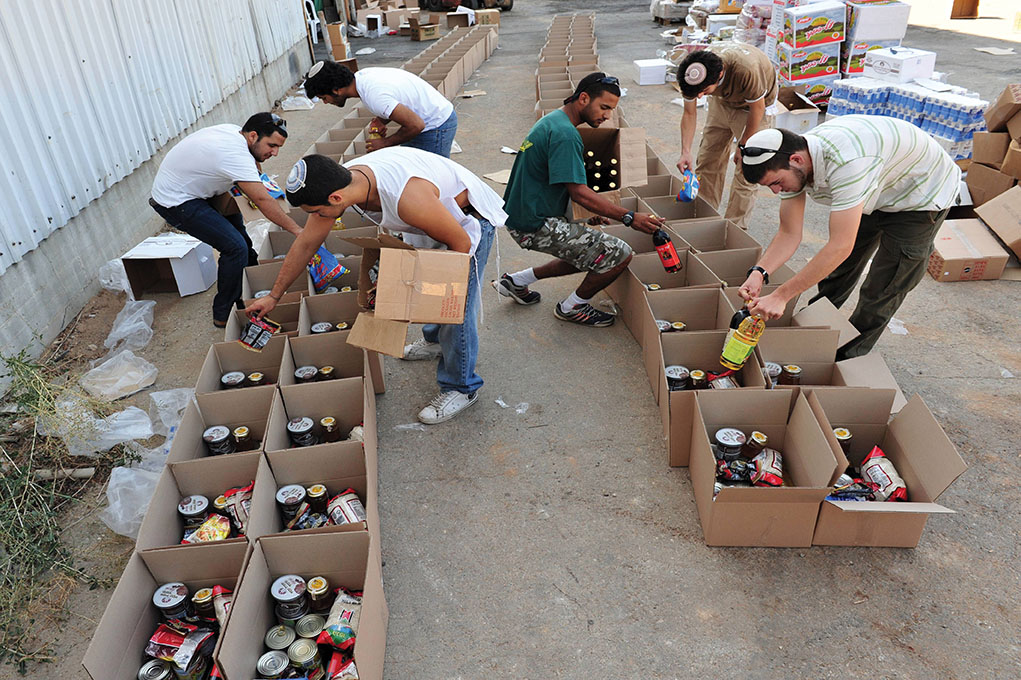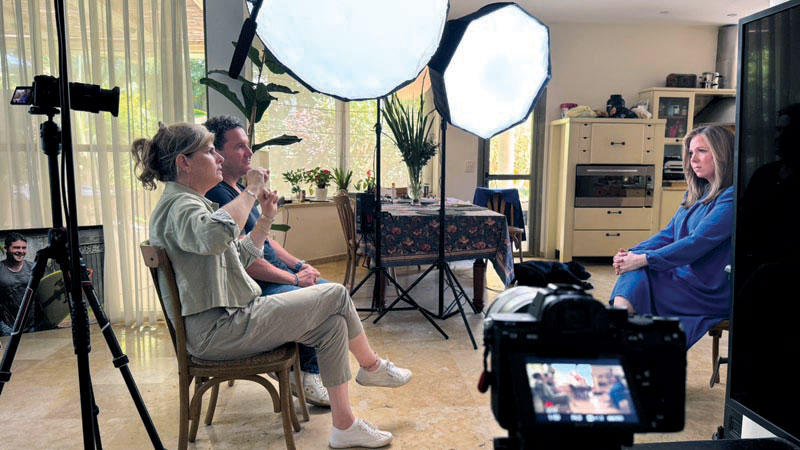
Paramedic Bar Kupershtein was taken hostage by Hamas when he was working at the Nova music festival on Oct. 7 and remains in captivity today. But before he was taken hostage, he helped treat and evacuate as many people as he could. His story is told through his mother, Julie Kupershtein, in the forthcoming documentary, “October 7: “Voices of Pain, Hope and Heroism.”
Jamie Geller, the film’s producer and the chief media and marketing officer of Aish (the organization behind the film), told The Journal in a video interview from Israel that “the documentary isn’t a memorial as much as it is a tool for moving forward. I think that’s what we all need, we’re still living with this trauma, with hostages still in Gaza, with the war now in the northern front … and I felt like we needed something that demonstrated strength and resilience and power and positivity.”
“The documentary isn’t a memorial as much as it is a tool for moving forward.”
–Jamie Geller
The film, which has been viewed by The Journal, focuses on five Israeli families and their experiences over the past year since Oct. 7. The first family is Kupershtein’s. “[Bar] had the opportunity to run and to save himself,” said Geller, “but not only did he not do that, he went back-and-forth seven or eight times evacuating the wounded and continued to go back and to treat the wounded. And in fact, one of his paramedic friends … was like, ‘this is crazy we have to save ourselves.’ And [Bar] said, ‘go if you want, you can go, but I’m not leaving these people here behind.’ And his friend escaped and (is) here to tell the story.”
One of the first videos of the hostages that Hamas posted to Telegram featured Bar; he can be seen lying face down with his hands tied behind his back alongside four other hostages and shouting “take care of him!” regarding another hostage who was injured. That has been the only sign of life for Bar, so far.

Geller said that Kupershtein’s story is “the most heartbreaking” because the family has no idea if Bar is still alive. And Kupershtein gives the “most powerful quote” in the documentary when she says: “My son is not in the hands of Hamas, he’s in the hands of the creator of the world.” Her faith is “unwavering and she created a number of initiatives on his behalf,” Geller said. The film discusses an initiative in which tefillin and a kippah are given on behalf of each of the hostages.
Major General Noam Tibon’s story is next. He rescued his son Amir and the rest of his family — as well as several others — from Kibbutz Nachal Oz on Oct. 7. Tibon, armed with only a handgun, explains how he and his wife made the perilous journey from Tel Aviv down to Nachal Oz that day. Geller said that when she held a free screening in Israel of the documentary, “people went from tears to clapping” because it was such a “heroic rescue.”
The documentary also tells the story of Iris Haim, the mother of Yotam Haim. Yotam was a hostage who was mistakenly killed by the Israel Defense Force (IDF) in Gaza. “Yotam and two others had “escaped from their Hamas captors and were running toward the IDF to be saved,” Geller said, adding that Yotam’s mother’s message is “only love” and “unity,” and zero anger. Geller pointed to how Haim “embraced the soldiers after she’s become a symbol of national unity and support.”
The fourth family featured is Sgt. Binyamin Airley’s. He was killed during a military action in Gaza.
The final story in the film chronicles Alon Mesika, the father of Adir Mesika. Adir was murdered at the Nova festival. Mesika is a jeweler, so he has “taken it upon himself to gift any soldier that wants to get engaged a diamond ring, because his son had a serious girlfriend and they never got engaged, never got to build a Jewish family,” Geller said. “He speaks about, “this is how we win. We win by continuing to build Jewish families, Jewish homes and a Jewish future.” Geller said she got “chills” just talking about it. “You end with this feeling of triumph. We don’t take you on a journey that leaves you on despair, this triumph and spirit just comes through.”
Finding these families and getting them to tell their stories on camera “took a village,” recalled Geller, explaining that it was “who knows who” and “calling and calling again. Some people would like to tell their stories — it’s cathartic — and some people had to be a little bit convinced.” The Mesika family was a last-minute addition to the film, included just before it was scheduled to go into post-production, having just returned from the unveiling of Adir’s stone at his gravesite. “I am forever grateful and feel so honored and privileged that they decided to open up to us,” Geller said. “I wish we could do more, because there are thousands of stories like this, from the injured, from the rescued, from the fallen, from the dead and from the hostages.”
Geller, a former producer at CNN and HBO, has “done a lot of work both behind the camera as a producer and also on-camera over the years, so it “feels like my whole life has led up to this moment.” At Aish, Geller oversees production, media, marketing and communication. “Our main focus is on short-form content on social and written content online, so this is the first documentary that we’ve done organizationally in recent years.”
The film has played in Israel around Tisha b’Av; Geller said that “people were crying but also there [were] tears of, ‘we’re going to make it.’” Her grandparents were Holocaust survivors, and she remembers the feeling of “despair” and “fear and shock” after Oct. 7. “I only felt comforted knowing that we had rebuilt already, we’ve gotten through this … we’ve been here before.” But there were some younger influencers in the audience during the screening who felt that “this was the proof that we’re going to make it … so tapping into the emotions was really critical.”
The documentary will be available to stream on YouTube, X and the oct7film.com website on Oct. 7 at midnight EDT on Oct. 7, and free screenings will be held at community centers, synagogues and schools in more than 100 cities worldwide, including Boston, Honolulu and Perth. “This film is too important to put a price tag on,” Geller said. “It is much more critical that people see it than it be any kind of money maker … [or] any kind of barrier for entry.”
Aish’s next documentary will be focusing on campus antisemitism. Geller hopes that the Oct. 7 documentary will serve as a tool to help fight antisemitism. “I am a woman of faith, but I do feel like changing people’s minds and moving people to the other side is very challenging, but I do feel like those (in the) center are open to listening,” she said. “This is a critical tool for people who want to be allies and/or Jewish people who don’t know what to say, don’t know how to feel proud, are not educated, don’t know how to stand up, just to begin to arm them with the tools and the conversation points and the humanity and the stories of what happened, and I feel like it will empower them.”
For more information about “October 7: “Voices of Pain, Hope and Heroism,” visit oct7film.com.







